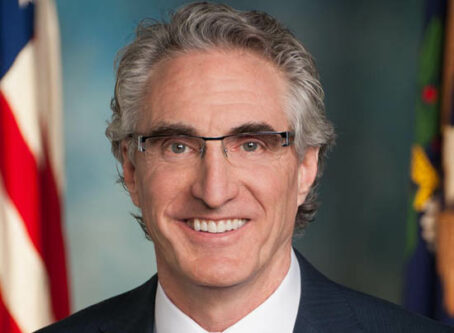Nine Northeast states and D.C. sign on to carbon emissions reduction agreement
Nine Northeast and Mid-Atlantic states plus Washington, D.C., have agreed to long-term plans that will reduce carbon emissions within the transportation systems in the region. Only an initiative was stated, leaving any plans or other details unclear.
On Tuesday, Dec. 18, Connecticut, Delaware, Maryland, Massachusetts, New Jersey, Pennsylvania, Rhode Island, Vermont, Virginia and Washington, D.C. announced their collective, regional plan called the Transportation and Climate Initiative.
“The Northeast and Mid-Atlantic states are taking steps to develop cleaner transportation systems that reduce congestion, promote walking, bicycling and transit use, support innovation and economic growth, improve air quality, help communities become resilient to extreme weather events, and equitably share the benefits and burdens among users,” the group said in a statement.
In the making since 2010, the group states that emissions from transportation account for the largest portion of the region’s carbon pollution. The initiative aims to advance low-carbon transportation solution in the region to address threats posed by carbon and other pollution.
What are those solutions? That is yet to be determined.
Participating states and the nation’s capital have merely agreed on a variety of goals to achieve, including:
- Ensure carbon reduction goals are met.
- Create opportunities for low-carbon technologies.
- Ensure benefits and burdens of pricing mechanisms and investments are shared equitably.
- Enhance resilience of the transportation system.
- Reflect input from stakeholders, including local community involvement in decisions.
- Maximize environmental, economic, social and public health benefits.
How those goals will be realized is what the coalition is working on. To start, the Transportation and Climate Initiative will design a regional policy. Within that policy, the group will determine the level at which to cap emissions and which fuels to regulate. The policy also will set processes and timelines for implementation of whatever plans are established.
Second, participants in the initiative will consult with experts and stakeholders during the design and implementation of the policy. Third, technical, environmental and economic analyses will be conducted, much like is required for federally funded road projects.
“We need to accelerate the transition to zero-emission cars, and that means getting charging infrastructure on the ground in our communities as soon as possible. With an absence of leadership at the federal level, state and local action is more important than ever,” Morgan Folger, director of the Clean Car Communities campaign for Environment America, said in a statement. “At the end of the day, nobody wants more pollution, so we should be doing everything we can to make it easier for Americans to drive clean, electric cars.”
Essentially, the alliance will design a regional low-carbon transportation policy proposal that would cap and reduce carbon emissions from the combustion of transportation fuels through a “cap-and-invest” program or some other pricing mechanism. The policy development process is expected to be completed within a year. Once completed, participating jurisdictions will decided whether or not to adopt and implement the policy.
According to a news release, state officials have already conducted regional listening sessions with approximately 500 stakeholders over the past year.









